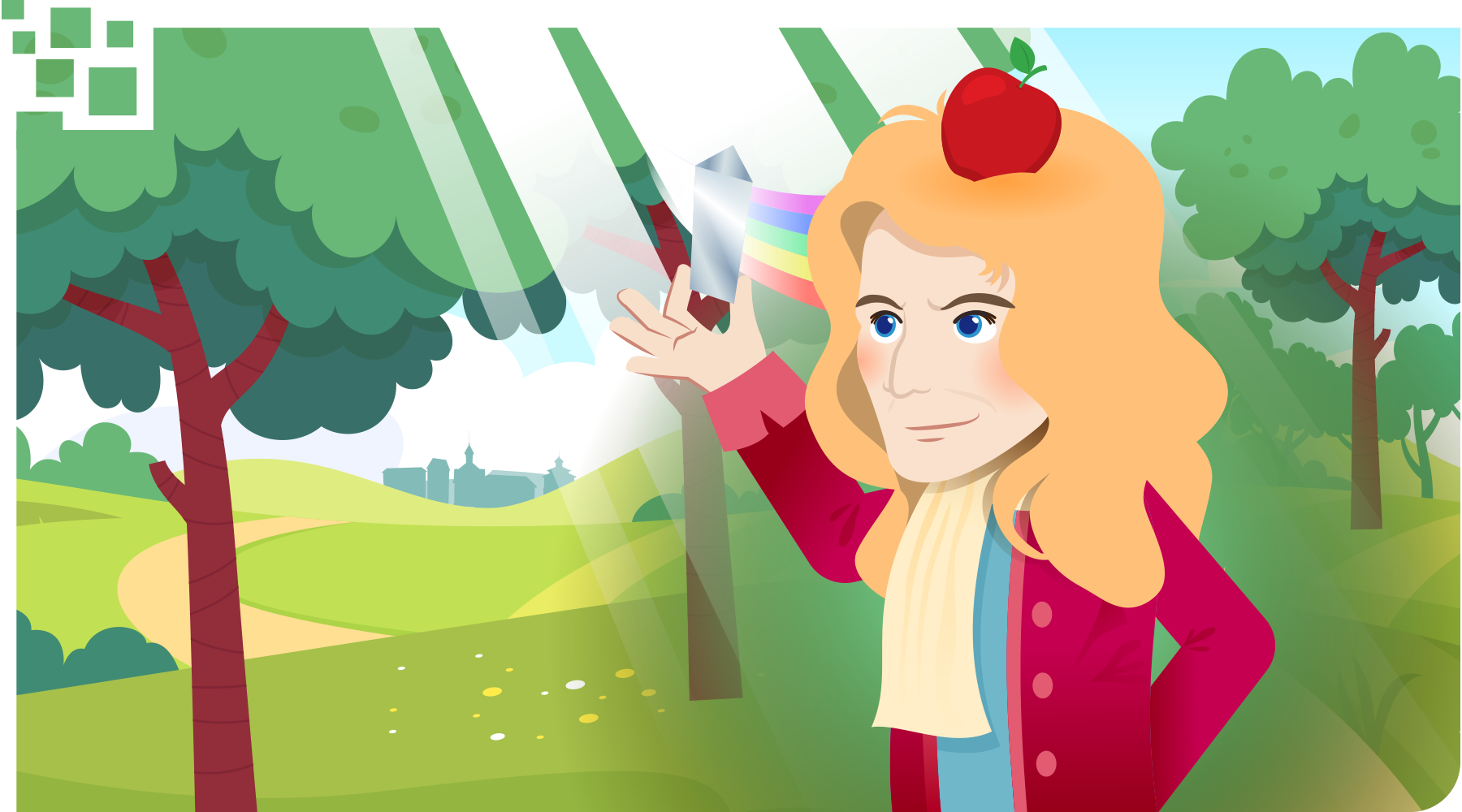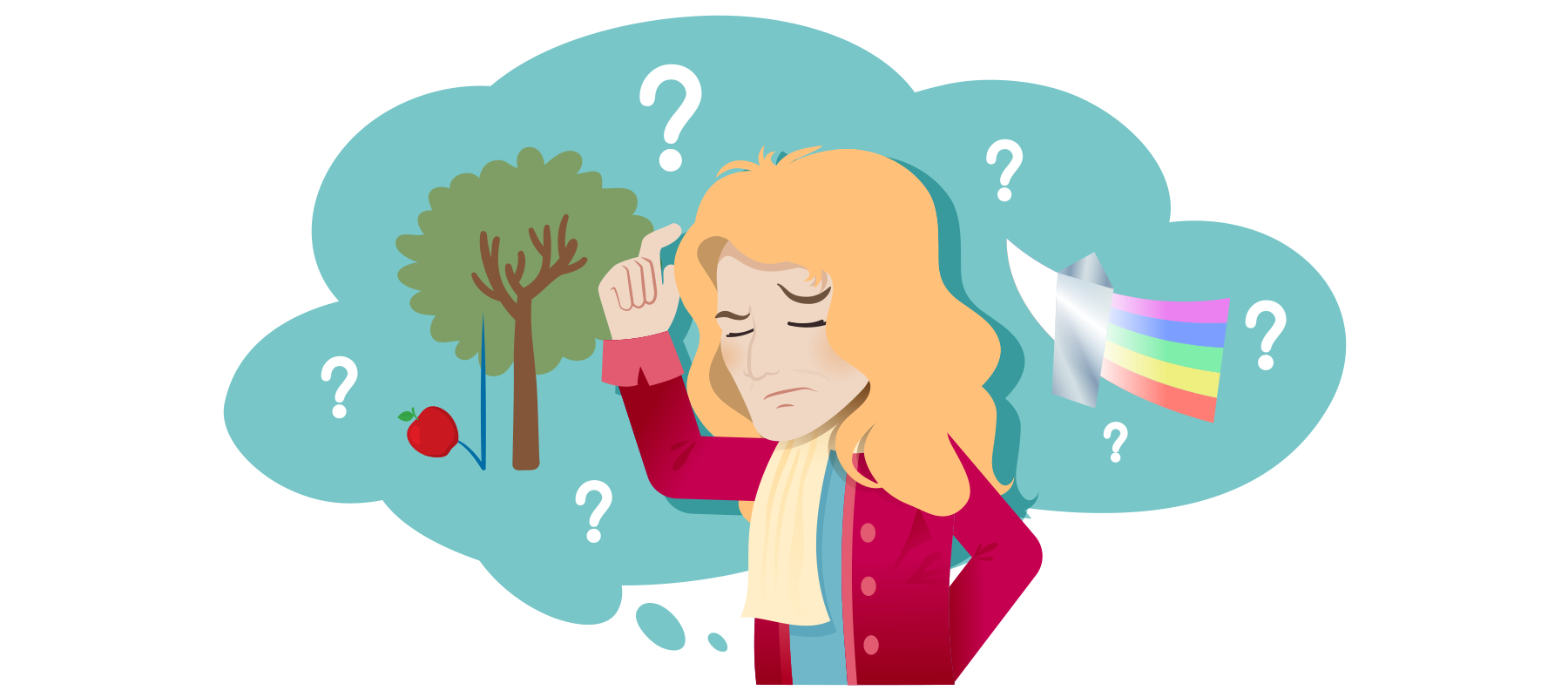

 Early life
Early life

 Achievements
Achievements

 professor of mathematics. In 1665, the
professor of mathematics. In 1665, the  Great Plague, which was a terrible disease and epidemic, spread in England, and Cambridge University had to close down. Newton left Cambridge and spent two years studying and doing experiments at his home. One day, when he was drinking a cup of tea in the garden, he saw an apple fall from a tree. He carried on with the studies and formed the theory of
Great Plague, which was a terrible disease and epidemic, spread in England, and Cambridge University had to close down. Newton left Cambridge and spent two years studying and doing experiments at his home. One day, when he was drinking a cup of tea in the garden, he saw an apple fall from a tree. He carried on with the studies and formed the theory of  gravity. Newton was also curious about light. He discovered that white light is made up of colours of the rainbow. In 1668, he invented the reflecting
gravity. Newton was also curious about light. He discovered that white light is made up of colours of the rainbow. In 1668, he invented the reflecting  telescope, which used mirrors to reflect light and form an image.
telescope, which used mirrors to reflect light and form an image.


 "calculus" and it is an important type of maths used in advanced engineering and science. In 1687, Newton published a book called "Mathematical Principles of Natural Philosophy", in which he described the three laws of
"calculus" and it is an important type of maths used in advanced engineering and science. In 1687, Newton published a book called "Mathematical Principles of Natural Philosophy", in which he described the three laws of  motion and the law of universal gravity.
motion and the law of universal gravity.

 Final years
Final years


Suggested answers
Job:
a scientist
Date and Place of birth:
Born in 1643 in England
Family and education:
- He grew up on a farm.
- His father died before his birth and his mother remarried.
- His grandparents took care of him.
- When he was twelve, his mother wanted him to work as a farmer, but he refused.
- When he was eighteen, he studied at Cambridge University.
Achievements as a scientist
in 1665 during the Great Plague:
- He formed the theory of gravity.
- He discovered that light is made up of colours of the rainbow.
in 1668:
He invented the reflecting telescope.
in 1684:
- He invented a new type of mathematics called fluxion.
- Today, people call it calculus.
- He also invented the three laws of motion and the law of universal gravity.
Achievements as the warden of the Royal Mint
- He fought against corruption.
- He reformed the currency of England.
Final years:
Although he was rich and famous, he did not get married or have many friends. He died in 1727.
Suggested answers
Suggested answers

Which of the following about Newton’s early life is true?


When did Newton study at the University of Cambridge?


What happened in the period of the Great Plague?


What is "calculus"?



Part B
Answer the following questions. For the multiple choice questions, choose the best answer.

Which of the following about Newton’s early life is true?




(Prompt: You can find clues in paragraph 2.)

When did Newton study at the University of Cambridge?




(Prompt: You can find clues in paragraph 3.)

What happened in the period of the Great Plague?




(Prompt: You can find clues in paragraph 3.)

What is "calculus"?




(Prompt: You can find clues in paragraph 4.)










